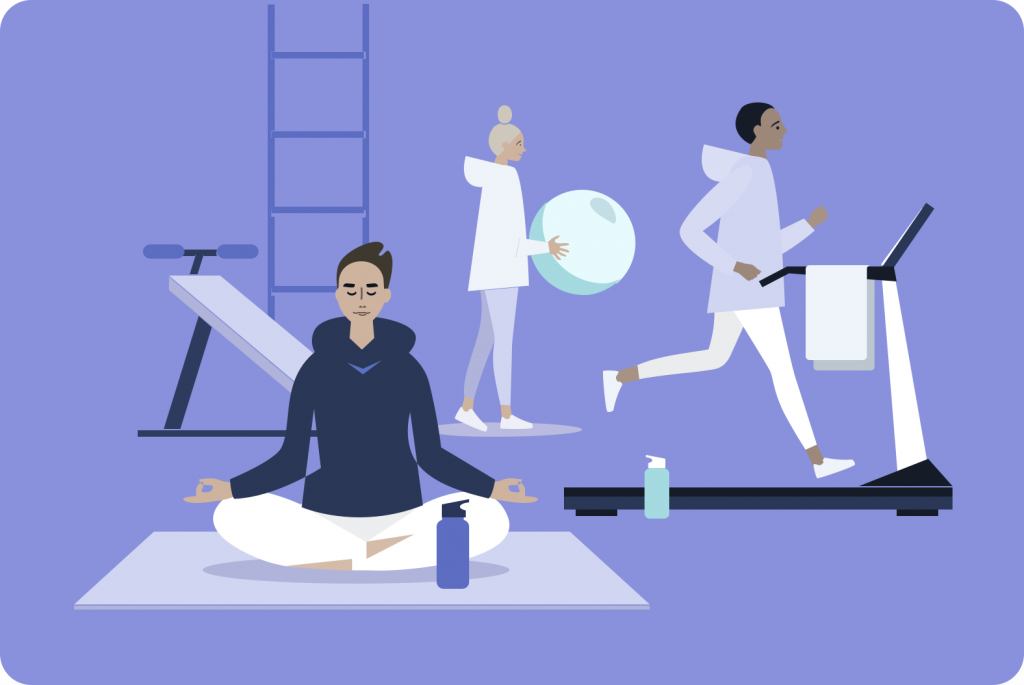TAKE ACTION
OCTOBER 2021
Energize your day
Whether you’re reasonably fit, want to shed a few pounds, or struggling with a chronic illness, anyone can reap the physical and emotional health benefits of exercise. Take a moment to learn what exercise can do for you.
Looking for more? Find other articles below

Exercise: the good-for-you habit
Regular exercise does a body good — from shedding those extra pounds to preventing health problems now and later. Whether it’s a morning walk or run, an evening yoga class, or a game of hoops with friends, better health happens when you move your body. Do it every day, and it will become a habit — something you don’t even have to think about.
You can start slowly, with a daily walk. Keep it up, and before long, you’ll start noticing that you feel better (and even look better). Exercise, like any other habit, can become something you can’t do without. And with all the health benefits it has to offer, exercise can be a great thing to get hooked on.
See what regular exercise can do for your body and mind.
Build a new & better you
Putting exercise into each day supports your physical well-being in some very important ways.
Want to reach a healthier weight? Exercise burns calories, making it easier to lose weight and keep it off. Because it also lowers blood pressure and bad (LDL) cholesterol levels, exercise can also help you avoid health problems like heart disease and stroke.
Living with type 2 diabetes? By making movement part of your daily routine, you can better manage your condition and fend off complications. That’s because exercise can lower blood sugar levels and insulin resistance. Tip: Exercise one to three hours after eating. That’s when blood sugar is often higher. Test first though. If your reading is over 250, you may want to wait until it’s below 100 mg/dL.
Trying to shake off a bad day? Physical activity boosts brain chemicals that can help you feel happier, more relaxed and less anxious. It’s a natural stress-buster that has the added bonus of boosting your self-confidence.
Did you know? Exercise can also help prevent cancer because it reduces inflammation in the body, keeps weight under control and boosts the immune system. For people diagnosed with cancer, regular exercise can make treatment more effective by reducing anxiety, increasing strength and energy, and helping with pain.
Get going!
If you’ve been less than active, walking can ease you into an exercise habit. Talk to your doctor first, then get going! Shoot for 30 minutes of walking each day. Break it up into two 15-minute sessions if that works better. Over time, add time and speed.
Other ways to move include: running, biking, strength training, yoga, stretching, gardening — anything that uses your major muscles and ramps up your heart rate.
The following resources are available to help you on your physical well-being journey.

